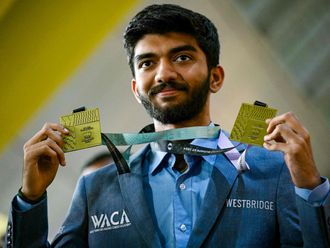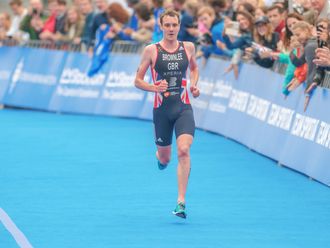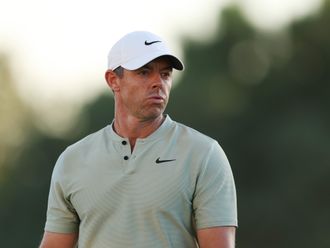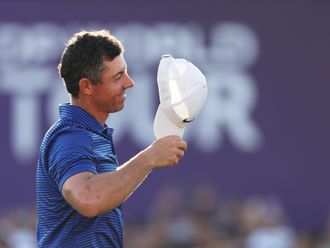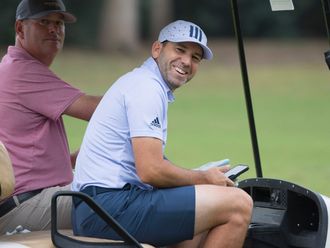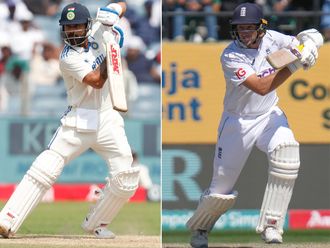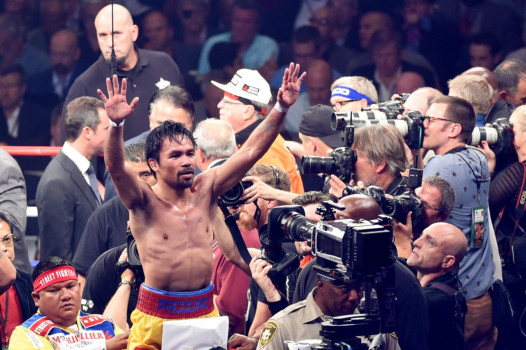
Las Vegas: The morning after the fight here became yuck-it-up time. The legendary P.T. Barnum line seemed a perfect fit: There is a sucker born every minute.
Included in those suckers were the 16,507 who filled the MGM Grand Garden Arena, generating a paid gate of $74 million (Dh271 million), all to watch Floyd Mayweather Jr. outbox Manny Pacquiao in a fight about as compelling as jam-packed freeway at 8 a.m. Also right there in Barnum’s pocket were the millions who paid $100 to watch on TV, and the media hordes that encouraged them to do so.
This was billed the Fight of the Century. As the Wall Street Journal so aptly put it, it’s good that we have 85 years left to top it.
There was a serious and significant side to what took place Saturday night.
Indeed, on a night that might have saved the sport, or at least improved its brand, it was only further damaged. That was not for the obvious reason of delivering a predictable and boring fight, but for the missed opportunity it presented.
More than an hour after the fight, when most sane people were asleep, Pacquiao’s team revealed, at the post-fight news conference, that their boxer had fought with a right shoulder injury.
The muscle tear reportedly occurred in early April, during a training session in the Wild Card Gym in Los Angeles, owned by Pacquiao’s trainer, Freddie Roach. The fighter’s sessions had been closed to the media and all but a handful of team members.
Roach said the injury appeared to be healing. But at one point during training, he had Pacquiao working only on left-hand-punching drills.
Pacquiao said in the news conference that he reinjured the shoulder early in the fight and was not as effective after that.
The situation got even more complicated as the news conference continued. It became a game of who knew and when did they know it.
Bob Arum, Top Rank Boxing’s chief executive and Pacquiao’s promoter, said they had sent a request for Pacquiao to be injected with painkillers for the fight. That injection would be a cocktail of three drugs, none banned, which included lidocaine. Arum said the request was sent to the Nevada State Boxing Commission a week ago.
Saturday night at 6:08 pm, three hours before the fight, Top Rank’s Bruce Trampler approached the commission to ask that the injection be done. The commission said no.
So Pacquiao went out, re-injured the arm, and much of the post-fight news conference furthered the impression that he fought mostly one-armed. It also included the impression that, somehow, the Nevada commission had done him wrong.
That impression was quickly clouded further when, as the news conference was ending and reporters were filing out, commission Chairman Francisco Aguilar took the microphone to say his commission knew nothing of any injury to Pacquiao until Trampler’s request. He said had they known in a timely matter, they would have ordered an MRI to confirm the injury and allowed the injection.
All of this raises the $64,000 question, or in the case of this fight, some $640 million questions:
Why didn’t boxing postpone the fight?
Why didn’t they bite the bullet, face the inevitable skepticism, and do the right thing?
Why did they take such a huge chance, knowing that an injury such as this would reduce Pacquiao’s chances against Mayweather to near zero and further turn off a generation of fans?
Those who paid dearly to see this were already feeling their pockets picked by the yawner fight they got. Now they are told they had paid for a yawner involving damaged goods. For most, going forward, the response will be: Fool me once ... but ...
All this, remember, came on a night that began with several cable companies carrying the fight pay-per-view locked up near fight time with the rush for late orders. The Twitter world was filled with pictures of blank TV screens, sent by people who had already paid their $100.
Arum was questioned about the ethics of putting an injured boxer out there, and he said, “All athletes play with injuries.”
In misfortune, there is often opportunity. Boxing had a chance to do the opposite of what it did. Instead of spoiling its brand, it could have enhanced it.
It needed to announce a postponement with a clear and constant message - along with refunds - that the sport needed to do what was right, that it would not sell a pig in a poke.
Eventually, the public anger and sarcasm would have subsided, and boxing might still have a future. Doing the right thing is always powerful, in life and in sports.
Boxing blew it. Its dream turned to disaster.
- Los Angeles Times


